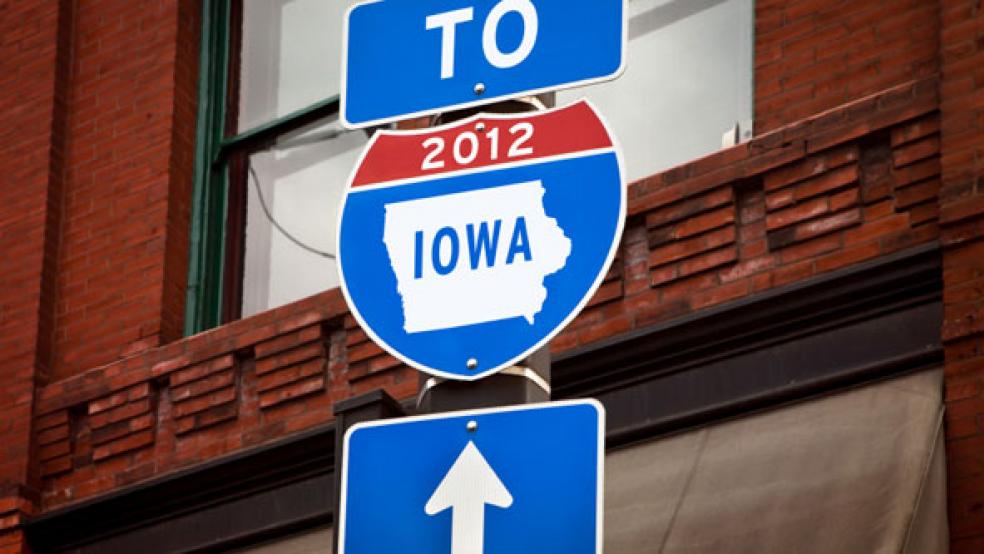As Iowa goes, so goes Iowa.
At least, that’s the conventional wisdom, suggesting that Iowa caucus voters are out of step with the country at large. According to many pundits, whoever wins the Iowa primary usually goes on to lose the nomination; or, even if they win, they lose the election.
In fact, the results of the Iowa caucus in recent years have tracked fairly closely to the eventual outcome. In 2008, Democrat Barack Obama’s surprising win in Iowa triggered a surge to national prominence. He eventually wrested a hotly contested nomination from Hillary Clinton before winning the presidency.
In 2004, Massachusetts Sen. John Kerry came from behind to win the caucuses over Vermont Gov. Howard Dean and Rep. Dick Gephardt (D-Mo.). While he lost to President George W. Bush, he was up against an incumbent who in 2000 had pulled the hat trick: winning Iowa, the nomination and the White House.
Of course, you’ll have a hard time finding presidential libraries for Mike Huckabee, Tom Harkin or Bob Dole, Iowa winners all. And George H.W. Bush’s win over Ronald Reagan in the 1980 Iowa caucuses was hardly a harbinger of things to come.
But here are six reasons why the results of Tuesday’s Republican straw poll will have a significant impact on upcoming Republican primaries, and could, ultimately, set the tone for the November campaign:
1. Iowa Republican caucus voters are more moderate than Republican primary voters nationwide, which could help give the party the centrist cast it needs to win in November. The latest polls show just 22 percent of Iowan Republicans call themselves members of the Tea Party, compared to 28 percent nationally; 34 percent of Iowa GOPers consider themselves “very conservative” compared to 42 percent of national Republicans; and 22 percent Hawkeye Republicans still use the tag “moderate” compared to just 16 percent nationwide.
2. Pandering on economic issues has less salience this year. The $6 billion ethanol subsidy expired at the end of December with barely a whimper, allowing frontrunners Mitt Romney and Ron Paul to avoid the traditional kowtow on this long-standing handout to Iowa farmers. The more conservative candidates in the race have actively campaigned against the ethanol subsidy.
3. Iowa Republican voters are younger than the party’s nationwide electorate -- therefore more like voters as a whole. About 42 percent of the 120,000 or so voters who will trek to the polls on Tuesday will be under 44, according to the latest Des Moines Register poll. Nationwide, according to Public Policy Polling, just 35 percent of Republican primary voters are under 45.
4. Libertarian Ron Paul’s likely strong showing will tell us nothing about Iowa or the nation. As Nate Silver reported last week on his FiveThirtyEight blog, large numbers of independent and Democratic voters are expected to cross over for the caucuses to register their support for Paul’s opposition to the Federal Reserve and overseas interventions, respectively. These issues will not matter in November.
5. Mitt Romney’s solid performance will confirm recent polls showing electability matters to many rank-and-file Republicans. President Obama’s latest approval ratings in Iowa improved markedly over last summer with stronger than expected numbers from women and older voters, according to an NBC/Marist poll. The trend suggests a rabidly partisan or ideological candidate will have trouble winning in November.
6. Iowa’s economy is better off than the nation as a whole. Unemployment is just 5.7 percent, farm income and farm land prices are high, and the after effects of the burst housing bubble such as foreclosures are all but non-existent. Normally, this would be a sign that Iowa doesn’t matter or is out of step with the country since there’s no doubt that the economy will be the major issue next November. But if unemployment falls throughout the year, even if modestly, the electorate will be wary of candidates bearing radical solutions.





